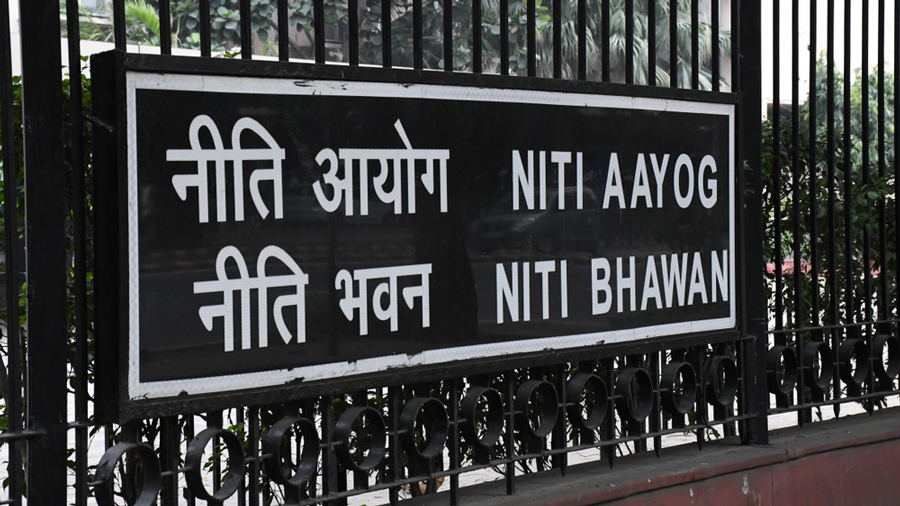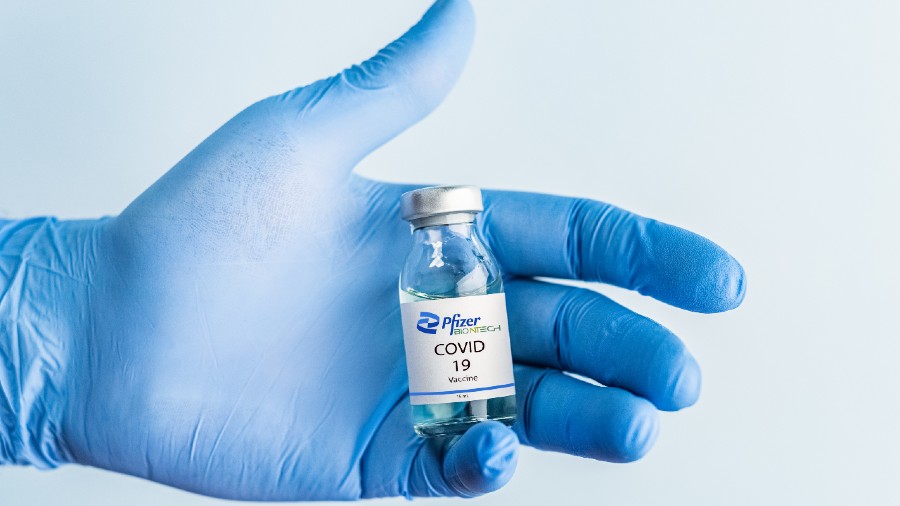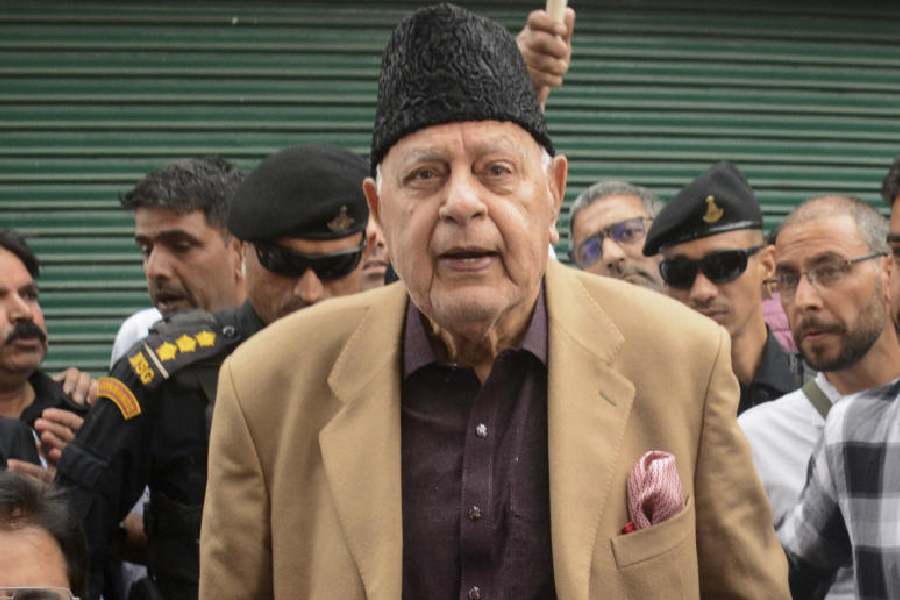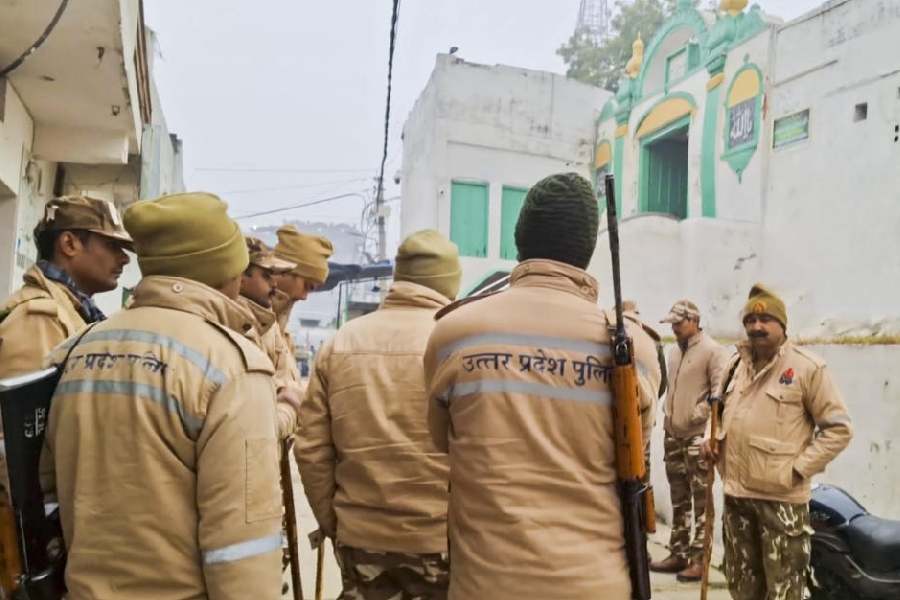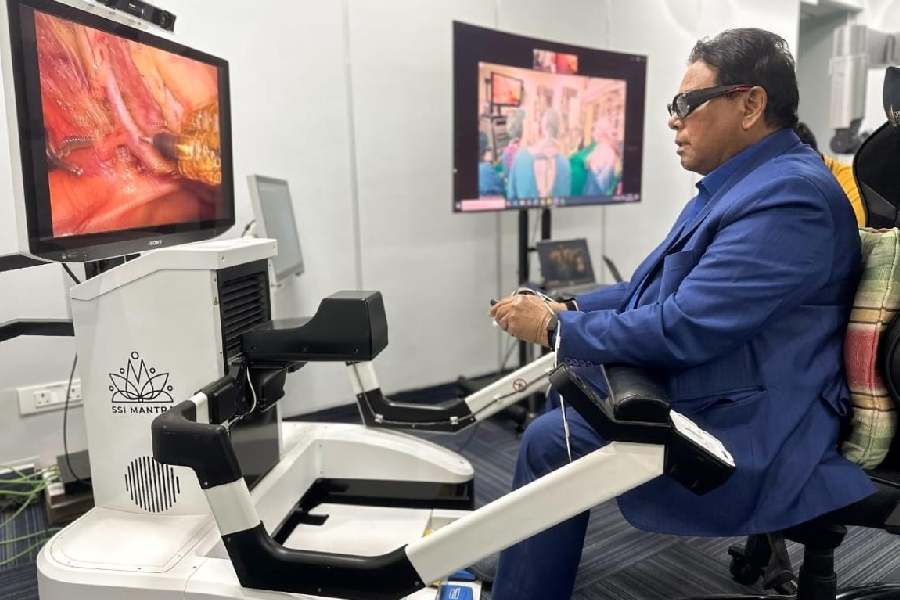The Niti Aayog, the Centre’s apex think tank, has described as “myths” most of the criticism levelled against the Narendra Modi government on the vaccination programme in the country.
In a note released on Thursday, Vinod Paul, member (health) at the Niti Aayog, challenged the “myths” with explanations.
But several experts underlined the note’s silence on the Centre’s inactions during the second half of 2020 that they said lay at the root of the troubles.
In response to a question, K. Sujatha Rao, a former health secretary, said the Niti Aayog note appeared an attempt to “rationalise a bad decision and a serious error that has weakened and badly dented the prestige and reputation of the central government”.
R. Ramakumar, an economist and professor of development studies at the Tata Institute of Social Sciences, Mumbai, said some of the note’s content “reads quite like a joke”.
The following are excerpts from Paul’s note and the views some former government administrators, economists and public health experts shared with The Telegraph:
Alleged myth: The Centre has abdicated its responsibility by asking the states to procure vaccines.
Niti Aayog: The Centre is doing the heavy lifting, from funding the vaccine makers to giving them quick approvals to ramp up production and bring foreign vaccines to India. The vaccines procured by the Centre are supplied to the states for free administration.
The Centre has enabled the states to procure vaccines by themselves on their explicit requests. The states knew about the production capacity in the country and the difficulties of procuring vaccines from abroad.
The Centre ran a well-administered vaccination programme from January to April compared with the situation in May. But health is a state subject and the liberalised policy was a response to incessant requests from the states. That the states have been unable to procure foreign vaccines reaffirms what the Centre has been telling the states from day one: that vaccines are in short supply across the world.
Experts’ views: This explanation implies that the Centre allowed the states to expand the vaccination campaign to include all adults knowing there would not be enough vaccines to meet the demand, thus creating a mess. The Centre’s initial policy to prioritise healthcare workers, frontline workers and adults 45 years or older was the correct strategy given the need to protect the most vulnerable against the backdrops of India’s population and finite vaccine supplies.
Throughout 2020, the Centre had actually asked the states not to try and procure vaccines on their own. Some administrators and experts believe the Centre should have stood firm on its original policy.
“Just because some states asked for flexibilities.... It is the national interest that the Centre is expected to protect,” said Sujatha Rao. “And it was neither financially nor practically possible to have the states compete with each other for vaccines.”
When the Centre had in October 2020 outlined its strategy of initially vaccinating only priority populations, the states that wished to vaccinate all adults could have questioned the policy and sought a revision, said Keshav Desiraju, a former health secretary.
“The states could have challenged the Centre’s strategy…. They may not have done so in the hope that the Centre would pay for the vaccines as the Centre should have done,” he said. “In the event, the Centre is not paying and the states have lost time.”
Ramakumar and others believe the decision to allow the states to vaccinate all adults had the “political objective” of shifting the blame for vaccine shortages to the states. Amid finite vaccine supplies, the Centre should have resisted the demands from the states through consultations and persuasion, they say.
“It is almost childish to say, ‘We told you there would be no supplies, yet you insisted, so we introduced the flexibility to vaccinate all adults’,” said Rijo John, a health economist and adjunct professor at the Rajagiri College of Social Sciences, Kochi.
Alleged myth: The Centre is not doing enough to buy vaccines from abroad.
Niti Aayog: The Centre has continuously engaged with vaccine makers from mid-2020, including Pfizer, Moderna and J&J. The government offered all assistance….
But vaccines are in short supply and companies have their own priorities, game plans and compulsions. They also give preference to the countries of their origin just as our own vaccine makers have done for us.
As soon as Pfizer indicated vaccine availability, the Centre began working with the company. Sputnik is already in India. The Centre has requested all global vaccine makers to come and make in India.
Experts’ views: These actions have come too late. While many countries paid the vaccine makers for at-risk production and scale-up and signed advance purchase pacts with them between July and November 2020, India did not. The Centre did not provide any funding to either domestic vaccine makers or foreign companies to secure doses.
While vaccine makers may prioritise sales to their own countries, this does not preclude simultaneous sales to others. The Pfizer vaccine has orders from Brazil, China, Japan, Lebanon, Malaysia, Ukraine and other countries. The Moderna vaccine has orders from Australia, the European Union, Philippines and others. None of these is either vaccine’s “country of origin”.
Had India adequately assessed its dose requirements and signed advance procurement pacts in 2020, the experts believe, foreign vaccines would have been available in the country now.
Alleged myth: The Centre is not doing enough to ramp up domestic production of vaccines.
Niti Aayog: The Centre has been an “effective facilitator” to enable more companies to produce vaccines from early 2020. It has ensured that three other (public-sector) companies will produce Covaxin while Bharat Biotech will enhance its own production from 10 million doses per month now to 100 million doses by October this year.
Additionally, the three public-sector units will produce an additional 40 million doses per month by December. The Serum Institute is ramping up Covishield production from 65 million doses to 110 million doses per month. India hopes to produce 2 billion doses by the end of 2021.
Experts’ views: The Centre should have funded Bharat Biotech and the Serum Institute to scale up production by October 2020 when the results of the Phase 2 clinical trials of both vaccines had emerged. Similarly, it should have funded the public-sector companies earlier. It takes three to four months for companies to scale up production.
Alleged myth: The Centre has not approved vaccines available globally.
Niti Aayog: The Centre eased the entry of foreign vaccines in April. The vaccines need not undergo prior bridging clinical trials. No application of any foreign manufacturer for approval is pending with the drugs controller.
Experts’ views: Again, delayed actions. Pfizer was the first to seek approval for a Covid-19 vaccine in India but the vaccine was not approved and the company withdrew its application in February.
The company had even offered to help the country with logistics for ultra-low-temperature transport. The decision to open up India’s market to approved foreign vaccines came only on April 13. But Pfizer was already moving doses to countries that had invested earlier.

